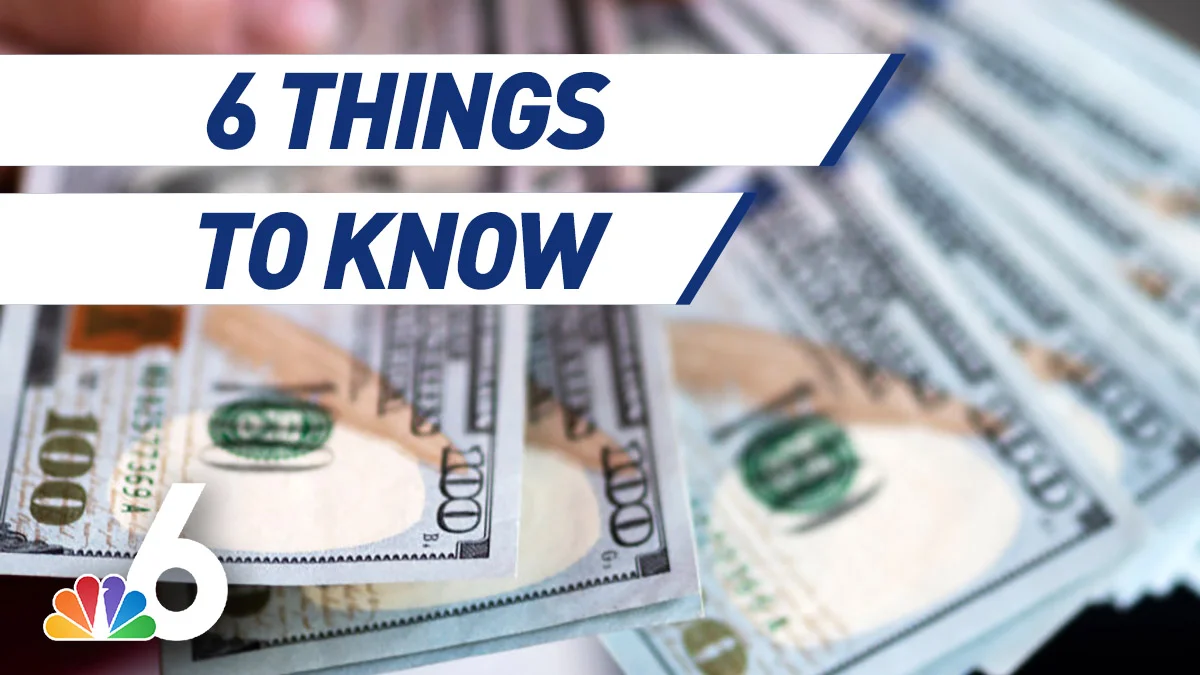6 Things to Know About Unemployment Benefits

The unemployment insurance system in the U.S. is considered one that’s combined at the federal and state level. The program, a form of social insurance, was created in 1935 as a way to help people who lost their jobs and are looking for work. Unemployment insurance benefits cover part of someone’s lost wages.
Employers collect taxes. Then they pay into the unemployment system on behalf of the people who work for them. If the employee loses their job, again, they have income support.
States run the basic unemployment program, but the U.S. Department of Labor oversees the entire system at the federal level.
States provide the majority of the funding for the program, and the individual states pay the benefits that are provided to workers. The federal government covers the administrative costs. States have to follow a few requirements set by the federal government, but overall can set their own benefit levels and criteria for eligibility.
Below are some of the main things everyone should know about unemployment insurance.
1. Many People Don’t Know They’re Eligible
In a lot of cases, people who are eligible for unemployment don’t know they are, so they don’t apply. For example, a study from the Great Recession in 2008, done by the St. Louis Federal Reserve Bank, found at the peak of that financial crisis, only around half of the people who were eligible actually applied for unemployment.
Over the following two years, the number surged up to 95%, but even then, it’s estimated that hundreds of thousands of people didn’t get the unemployment benefits they were entitled to because they didn’t apply or perhaps didn’t know the qualifications.
2. Eligibility
The Department of Labor says you need to meet two broad criteria to qualify for unemployment.
First, you have to be out of work because of something that was beyond your control—a layoff is the most common reason.
If you quit your job without a legitimate reason or you’re fired for gross misconduct, you wouldn’t be eligible.
Gross misconduct is a broad term, but typically it might refer to doing something dangerous or illegal at work, like using drugs or alcohol or stealing from your employer.
The other broad criteria for eligibility is that you meet the requirements for time worked or wages earned in your state, with every state having its own rules.
In the state of New York, for an example, you’re required to have worked in at least two calendar quarters of what’s called the base period. The base period is the year before. You have to have been paid at least $2,600 in one of the quarters, and you need to have made around 1.5 times the amount you made in your highest-paid quarter this year during that period. It sounds complicated, but to put it more simply, if you were working in a steady, long-term job, you’re probably going to meet the requirements for wages and minimum time in your state.
You’ll need to be actively looking for employment, although in some places if you’re training in a high-demand field, you might still be able to receive unemployment benefits.
If you work on a contract basis, you don’t qualify for unemployment. This is due to the fact that employers don’t pay unemployment taxes for contract workers when they’re working.
3. Filing
Every state’s filing processes and requirements vary. Some states have waiting periods in place, meaning you have to be unemployed for a certain period of time before you’re eligible to collect benefits. The waiting period is frequently a week, so then the second week you claim is your first week of being paid.
Maximum benefits also vary, and there’s a formula states use for calculation.
If you have vacation or severance pay at the end of the job, it might delay the receipt of unemployment benefits.
If you are laid off from your job, you should file quickly, rather than waiting until you think you actually qualify. The process isn’t always easy and can be lengthy, so you want to get a jumpstart on it.
4. How Long Can You Get Unemployment?
In most states, workers are eligible for up to 26 weeks of unemployment benefits through their state’s compensation program. Ten states provide fewer weeks than this, and two give more than 26 weeks.
In some cases, if an unemployed person exhausts their regular funding from their state, they might be able to get additional weeks of benefits.
During the COVID-19 pandemic, all states got access to funding from the federal government to provide extra weeks of Pandemic Emergency Unemployment Assistance benefits for people who had used their regular state benefits. This was provided under the CARES Act. There was also Pandemic Unemployment Assistance who lost their jobs because of no fault of their own but who weren’t typically eligible for unemployment insurance in their state.
Those programs ended nationally in September 2021, but a lot of states stopped providing people with federal benefits before then.
The two states that provide more than 26 weeks of unemployment benefits are Massachusetts and Montana.
The states that provide less than 26 weeks are:
- Arkansas
- Iowa
- Michigan
- South Carolina
- Missouri
- Alabama
- Georgia
- Florida
- Idaho
- Kansas
- North Carolina
5. How Much Do You Make?
After you file for unemployment, if you’re approved, you start receiving benefits. These can be deposited into your bank account directly, or you might get a check or a debit card—it depends on the state.
The amount you’re going to make depends on what your weekly earnings were before you were laid off. Your earnings also depend on the max amount of benefits paid to workers in your state. Many states will compensate you for half of your earnings, up to a maximum.
No matter how much money you earned at your job, you can’t get more than the max state amount in benefits.
Most states pay these benefits on a weekly or biweekly basis.
6. Taxability
Finally, your unemployment benefits are taxable income. You have to report the compensation on both your state and federal returns.












